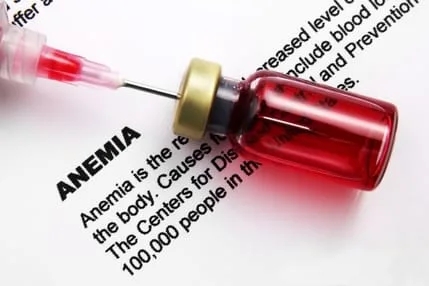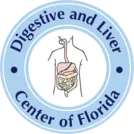What is Anemia?
To put simply, anemia is a condition where an individual lacks healthy red blood cells. This eventually leads to reduced oxygen flow to the body’s organs. The way anemia is measured is by doing a routine blood test, and based on the hemoglobin level in the body.
Anemia is the most common blood condition in the U.S., affected almost 6% of the population. Women, young children, and people with chronic diseases like cancer have the highest risk of developing it.
Types and Causes of Anemia
There are more than 400 types of anemia. They’re divided into three classifications:
Anemia due to blood loss
Bleeding can cause you to lose red blood cells. This happens over along period of time, therefore it’s possible to not notice. Causes of blood loss include:
- A woman’s period (heavy flow)
- Post-trauma or post-surgery
- Non-steroidal anti-inflammatory drugs like aspirin or ibuprofen
- Gastrointestinal conditions like ulcers, hemorrhoids, gastritis, cancer
Anemia due to decreased or faulty red blood cell production
This type of anemia means that your body doesn’t create enough blood cells, or that they’re not working the way they should be. This can possibly be due to not having enough vitamins and minerals in your body for the red blood cells to form. Circumstances that are connected with this type of anemia are:
- Bone marrow and stem cell problems
- Iron-deficiency anemia
- Sickle cell anemia
- Vitamin deficiency anemia (B12 or folate)
Anemia caused by destruction of red blood cells
Red blood cells may burst when they’re too fragile and can’t handle the stress of traveling through the body. When this happens, it’s called hemolytic anemia. There’s no definitely cause behind it, but here are some factors that may contribute to it:
- Attack by your immune system
- Conditions that are hereditary
- Enlarged spleen
- External factor putting strain on your body like drugs, snake or spider venom, certain foods
- Toxins from advanced liver or kidney disease
Symptoms of Anemia
- Pale skin
- Cold-sensitive
- Lightheadedness or dizziness
- Fatigue
- Constipation
- Brittle nails
- Shortness of breath
- Chest Pains
Diagnosis of Anemia
Before any laboratory tests are done, the diagnosis of anemia begins with both your health and family health history, as well as a physical exam. Once that’s done, laboratory tests are conducted to help the doctor find the ultimate cause of the anemia.
Tests that diagnose anemia are as follows:
Complete blood count (CBC): Shows the number and size of the red blood cells, as well as the levels of other blood cells (white blood cells and platelets) to see if they’re normal.
Serum iron levels: Shows whether or not you’re iron deficient.
Ferritin tests: It’s a blood test that analyzes iron stores.
Vitamin B-12 Tests: Exactly what the name says. It shows your vitamin B-12 levels—allowing your doctor to see if they’re too low.
Folic Acid Test: Discloses if serum folate levels are low.
Stool test for occult blood: If the test comes out positive, that means that blood is being lost somewhere in the gastrointestinal tract from the mouth to the rectum. Blood in the stool could mean having stomach ulcers, ulcerative colitis, or colon cancer.
Of course, you should never diagnose yourself after reading the above information. Make sure you stop by the Digestive and Liver Center of Florida and see one of our Orlando GI experts so they can gather the details needed to get to the correct conclusion and therefore, receive the right treatment. Schedule an appointment today. Call us at (407)384-7388.


